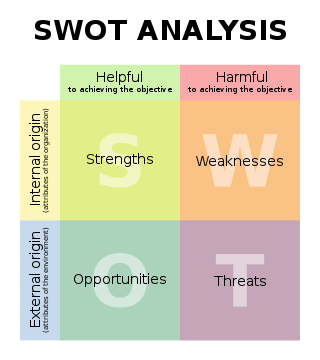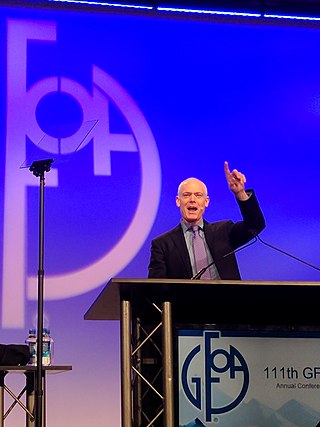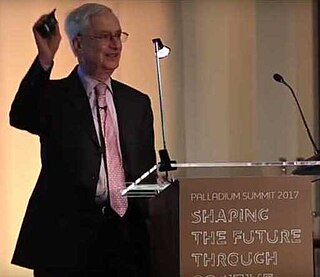In the field of management, strategic management involves the formulation and implementation of the major goals and initiatives taken by an organization's managers on behalf of stakeholders, based on consideration of resources and an assessment of the internal and external environments in which the organization operates. Strategic management provides overall direction to an enterprise and involves specifying the organization's objectives, developing policies and plans to achieve those objectives, and then allocating resources to implement the plans. Academics and practicing managers have developed numerous models and frameworks to assist in strategic decision-making in the context of complex environments and competitive dynamics. Strategic management is not static in nature; the models can include a feedback loop to monitor execution and to inform the next round of planning.

Porter's Five Forces Framework is a method of analysing the operating environment of a competition of a business. It draws from industrial organization (IO) economics to derive five forces that determine the competitive intensity and, therefore, the attractiveness of an industry in terms of its profitability. An "unattractive" industry is one in which the effect of these five forces reduces overall profitability. The most unattractive industry would be one approaching "pure competition", in which available profits for all firms are driven to normal profit levels. The five-forces perspective is associated with its originator, Michael E. Porter of Harvard University. This framework was first published in Harvard Business Review in 1979.

SWOT analysis is a strategic planning and strategic management technique used to help a person or organization identify Strengths, Weaknesses, Opportunities, and Threats related to business competition or project planning. It is sometimes called situational assessment or situational analysis. Additional acronyms using the same components include TOWS and WOTS-UP.

Michael Eugene Porter is an American academic known for his theories on economics, business strategy, and social causes. He is the Bishop William Lawrence University Professor at Harvard Business School, and was one of the founders of the consulting firm The Monitor Group and FSG, a social impact consultancy. He is credited for creating Porter's five forces analysis, which is instrumental in business strategy development at present. He is generally regarded as the father of the modern strategy field. He is also regarded as one of the world's most influential thinkers on management and competitiveness as well as one of the most influential business strategists. His work has been recognized by governments, non governmental organizations and universities.
A strategist is a person with responsibility for the formulation and implementation of a strategy. Strategy generally involves setting goals, determining actions to achieve the goals, and mobilizing resources to execute the actions. A strategy describes how the ends (goals) will be achieved by the means (resources). The senior leadership of an organization is generally tasked with determining strategy. Strategy can be intended or can emerge as a pattern of activity as the organization adapts to its environment or competes. It involves activities such as strategic planning and strategic thinking.
In Search of Excellence is a book written by Tom Peters and Robert H. Waterman Jr. First published in 1982, it sold three million copies in its first four years, and was the most widely held monograph in the United States from 1989 to 2006. The book explores the art and science of management used by several companies in the 1980s.
Japanese management culture refers to working philosophies or methods in Japan. It included concepts and philosophies such as just in time, kaizen and total quality management.
Barry J. Nalebuff is an American businessman, business theorist, and writer. He is a Milton Steinbach Professor of Management at Yale School of Management and author who specializes in business strategy and game theory. His published books include Thinking Strategically and The Art of Strategy. Nalebuff's class on negotiation has over 67,000 active learners through Coursera and has the second-highest net promoter score on the platform. He has a semi-regular column in Forbes with Ian Ayres called "Why Not?"

James C. Collins is an American researcher, author, speaker and consultant focused on the subject of business management and company sustainability and growth.

Robert Samuel Kaplan is an American accounting academic, and Emeritus Professor of Leadership Development at the Harvard Business School. He is known as co-creator of Balanced Scorecard. together with David P. Norton.
Positive deviance (PD) is an approach to behavioral and social change. It is based on the idea that, within a community, some individuals engage in unusual behaviors allowing them to solve problems better than others who face similar challenges, despite not having additional resources or knowledge. These individuals are referred to as positive deviants.
A two-sided market, also called a two-sided network, is an intermediary economic platform having two distinct user groups that provide each other with network benefits. The organization that creates value primarily by enabling direct interactions between two distinct types of affiliated customers is called a multi-sided platform. This concept of two-sided markets has been mainly theorised by the French economists Jean Tirole and Jean-Charles Rochet and Americans Geoffrey G Parker and Marshall Van Alstyne.
Thomas Hayes "Tom" Davenport, Jr. is an American academic and author specializing in analytics, business process innovation, knowledge management, and artificial intelligence. He is currently the President’s Distinguished Professor in Information Technology and Management at Babson College, a Fellow of the MIT Initiative on the Digital Economy, Co-founder of the International Institute for Analytics, and a Senior Advisor to Deloitte Analytics.
Joseph L. Badaracco is an American author, and the John Shad Professor of Business Ethics at Harvard Business School. He has taught courses on business ethics, strategy and management in the School's MBA and executive programs.
Business agility refers to rapid, continuous, and systematic evolutionary adaptation and entrepreneurial innovation directed at gaining and maintaining competitive advantage. Business agility can be sustained by maintaining and adapting the goods and services offered to meet with customer demands, adjusting to the marketplace changes in a business environment, and taking advantage of available human resources.
Neil Rackham is an author, consultant and academic. His writing focuses on "consultative selling," an approach he pioneered and documented in his book SPIN Selling (McGraw-Hill). Rackham has been a visiting professor at the University of Portsmouth, Cranfield School of Management, and the University of Sheffield, all in his native England, as well as at the University of Cincinnati, and is a frequent lecturer at conferences, business schools, and corporations around the world.

The McKinsey 7S Framework is a management model developed by business consultants Robert H. Waterman, Jr. and Tom Peters in the 1980s. This was a strategic vision for groups, to include businesses, business units, and teams. The 7 S's are structure, strategy, systems, skills, style, staff and shared values.
SEED-SCALE describes a comprehensive theory of social change sometimes also categorized as social development theory. SEED-SCALE can be used both to tell how to implement change and/or it can be used to analyze social change. SEED-SCALE focuses on human energy as the primary currency that causes people to change their behaviors.
John Julius Sviokla is an author and a principal and US Advisory Innovation Leader with PricewaterhouseCoopers (PwC). He also serves on PwC's Advisory Leadership Group, the Global Thought Leadership Council, and leads The Exchange — an ongoing think tank for PwC clients and business leaders. Previously, he served as Vice Chairman of the Board and Chief Innovation Officer at Diamond Management Consultants (NASDAQ:DTPI).

Richard Post Rumelt is an American emeritus professor at the University of California, Los Angeles Anderson School of Management. He joined the school in 1976 from Harvard Business School.







